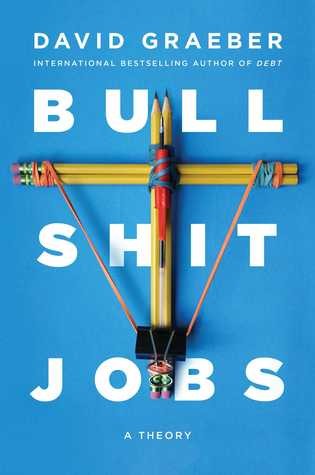Señó Moshuelo a publié une critique de Trabajos de mierda : Una teoría par David Graeber
Lo que todos sabemos y decimos con la boca chica
Pues para decirlo más y con palabras más ajustadas está este libro, para dinamitar desde la comprensión y el ofrecimiento de alternativas uno de los grandes fantasmas que nos afecta de diferentes formas a todes: el trabajo, sus características y sus efectos en nuestra vida. Me ha parecido uno de esos libros que te abren la percepción, que ponen palabras a sospechas y te hacen conectar circunstancias de tu día a día, darles un sentido global. Obras que nos amplían el horizonte y ayudan a comprender algo del fondo de nuestra angustia. Despierta las ganas de hablar con quienes nos rodean para preguntar si a ellos también les pasa esto que nos corroe. También sorprende cómo desde una forma expresiva más que accesibles es capaz de plantear sus ideas y dejárnoslas ahí candentes, incitantes. Seguiré leyendo a Graeber, eso seguro.
Pues para decirlo más y con palabras más ajustadas está este libro, para dinamitar desde la comprensión y el ofrecimiento de alternativas uno de los grandes fantasmas que nos afecta de diferentes formas a todes: el trabajo, sus características y sus efectos en nuestra vida. Me ha parecido uno de esos libros que te abren la percepción, que ponen palabras a sospechas y te hacen conectar circunstancias de tu día a día, darles un sentido global. Obras que nos amplían el horizonte y ayudan a comprender algo del fondo de nuestra angustia. Despierta las ganas de hablar con quienes nos rodean para preguntar si a ellos también les pasa esto que nos corroe. También sorprende cómo desde una forma expresiva más que accesibles es capaz de plantear sus ideas y dejárnoslas ahí candentes, incitantes. Seguiré leyendo a Graeber, eso seguro.






